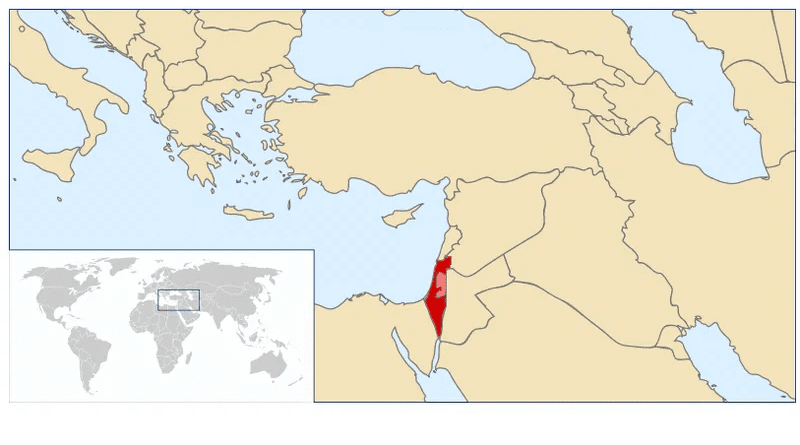Settlers Turn On Palestinians And On Israel (December 10 – December 17) – OpEd
By MIFTAH
The week was packed with events, both good and bad. At dawn today, December 17, Majed Nabaheen, 35, was killed in the Breij refugee camp in central Gaza Strip after being shot by Israeli soldiers just outside his house. Israeli shelling was already taking place in nearby agricultural land.
On December 10, another Palestinian died, 27-year old Mustapha Tamimi who was shot on December 9 and died later of his wounds. Tamimi, a familiar face in the Nabi Saleh weekly protests against Israeli land expropriation in the village, was shot at close range in the face with a teargas canister by an Israeli soldier.
Thousands of Palestinians, including presidential secretary general Tayyeb Abdel Rahim, participated in Tamimi’s funeral. Two people were injured and dozens suffered from teargas inhalation. Four protesters were arrested during the procession.
The week was marred by a number of settler attacks against Palestinians, namely against holy sites. On December 15, Al-Nour Mosque in the village of Burqa near Ramallah was torched and spray-painted with racist anti-Arab and anti-Muslim slogans a day after a similar attack took place on the Akasha mosque in west Jerusalem. Last week, a mosque was torched in the Nablus area village of Burqin, all by “price tag” settler groups who are protesting Israel’s attempts to evacuate illegal settlement outposts.
Settlers also raided the northern West Bank villages of Yasouf and Haris, torching two cars. According to local sources, the settlers snuck into Yasouf after midnight and wrote the words “price tag” on the village walls. Also, in the Nablus-area village of Duma, Israeli settlers set fire to a water tank and a car.
On December 16, Israeli settlers attacked Palestinians in Hebron after they had finished burying a settler and his wife in the nearby cemetery. He added that the clashes in the Tal Rmeida neighborhood had begun after one of the settlers spat on a young Palestinian man, which sparked a swift escalation in clashes between both sides.
But Israel was given a taste of its own medicine on December 12 when setters turned on their own people. Fifty settler youth entered a central West Bank military base, threw rocks and vandalized military vehicles, including the pelting of the deputy Regional Brigade commander with stones, setting fires, and throwing paint.
The settler vigilantes acted out in response to reports that the army was planning to evict a West Bank settlement. The youths were warded off by Israeli security forces.
That same evening, 17 right-wing activists, three of them minors, took over a church on the Jordan-Israel border in what they said was a “message” to Jordanian authorities to “keep out of Temple Mount affairs”, in reference to the closing of the controversial Moroccan Gate bridge that leads to Al Aqsa Mosque compound.
Seventeen settlers, who belonged to the so-called “hilltop youth” were arrested. The settlers took over churches near the Qasr al-Yahud holy site, which is the believed site of Jesus’ baptism after crossing the border fence into a closed military zone between the two countries.
Also on December 12, settlers hurled stones at Palestinian vehicles east of Qalqilia and lightly injured three Sowwan family members including a 5-year old girl.
Not all settlers are happy with the turn of events though. On December 15, Menachem Froman the head rabbi of the Tequa settlement near Bethlehem said Jewish extremists who attack Palestinian mosques and property should be expelled from the country, saying Jewish groups who attack Islamic holy sites have nothing to do with the Jewish religion. He said the perpetrators and their families “should be kicked out of the country to the US from where they came,” and deserve to have stones thrown at them.
Israeli Prime Minister Benjamin Netanyahu, although peeved at the settler attacks, would not go as far as calling them “terrorists” like some in his cabinet had liked to have done. Additionally, it has not stopped him from approving more and more settlement construction in the West Bank and east Jerusalem. On December 11, tenders were approved for 296 housing units in Ariel, southwest of Nablus, in addition to 40 housing units in Efrat south of the West Bank. 1,700 dunums of lands are also slated for confiscation in the Bethlehem area for later settlement expansion.
Furthermore, on December 11, Israeli plans were announced to confiscate one million dunams of land from the Negev Bedouin. This would entail the destruction of 30 Bedouin villages and the displacement of around 100,000 residents. Israel’s plan aims at militarizing the northern part of the country and preventing any geographic contiguity between the Negev, the Gaza Strip and the Sinai. The 200,000 Bedouin to be effected and the 100,000 dunams will be confined to a fenced in area similar to a military or refugee camp.

